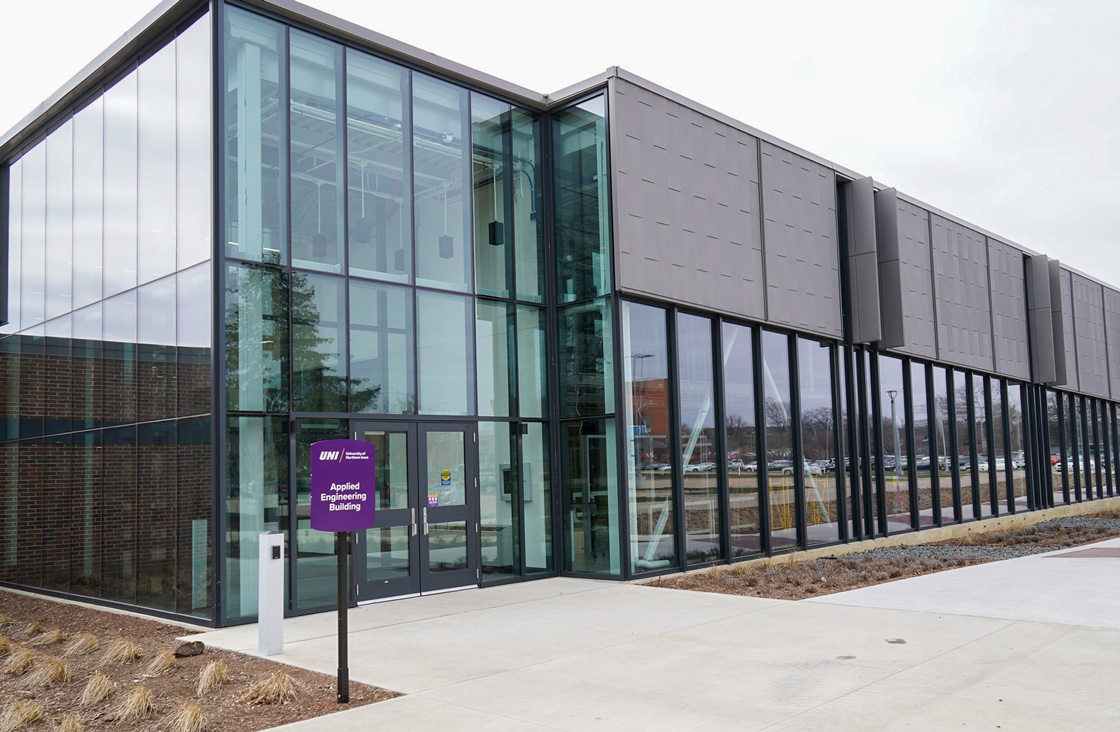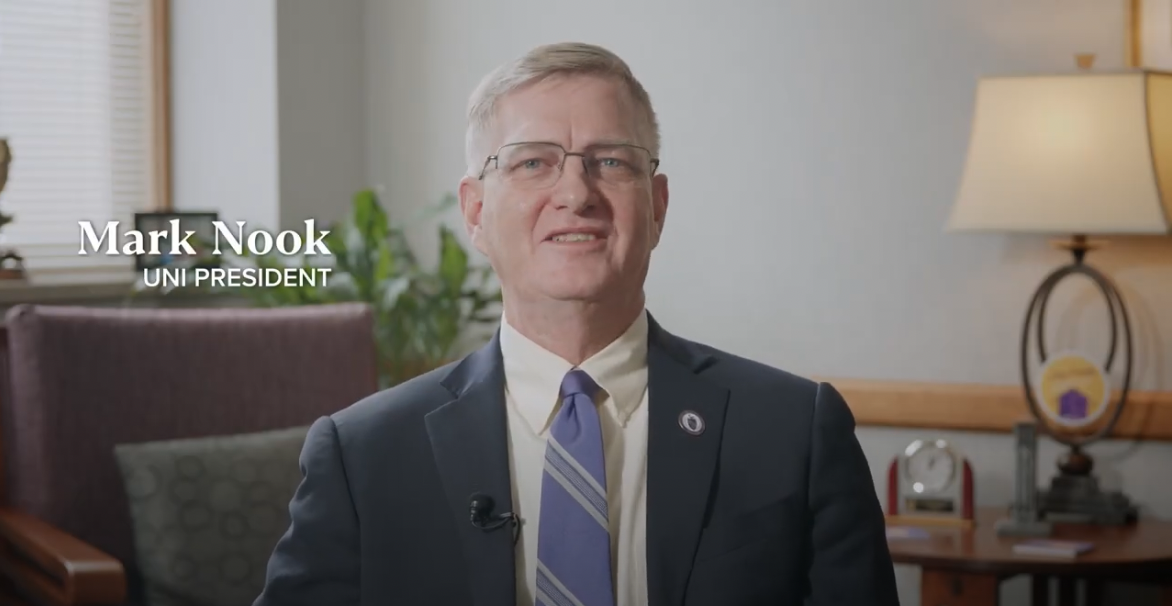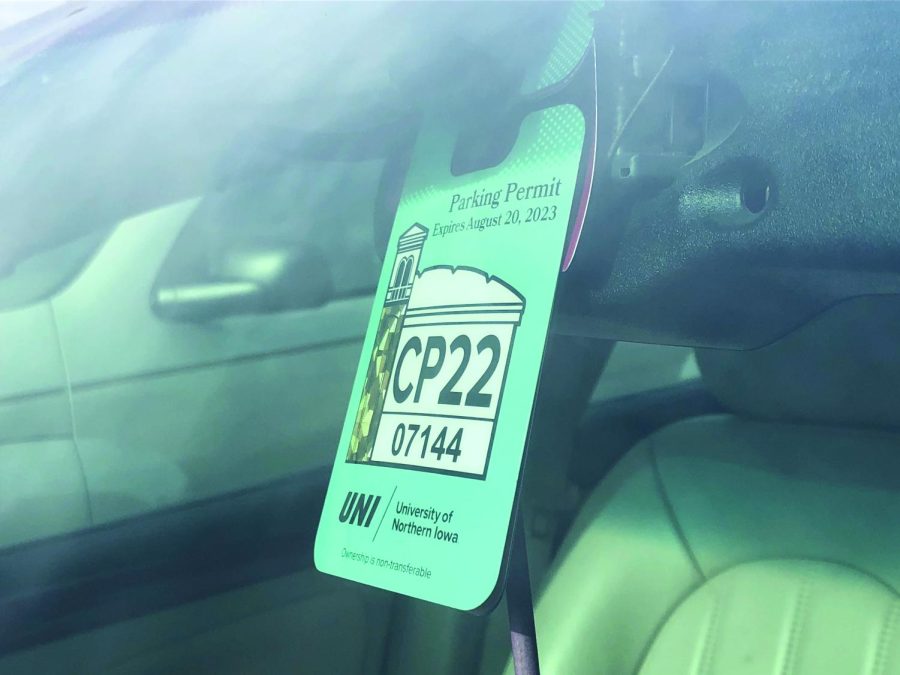Gender pronouns, misogyny, hetero-normitivity, survival, theoretical suffocation, lithromanticism, Christianity and the good versus bad dichotomy. These topics were among many discussed during the Queer Monologues, hosted by UNI Proud in celebration of Pride Week Tuesday.
The University of Northern Iowa’s Proud is the oldest and largest LGBTQ* student-led organization on campus, according to their president, Ella Daft, sophomore political science major. Proud works with identified members of this community and their allies, which include UNI faculty, staff and students. The organization hosts an annual Pride Week in order to raise awareness and celebrate the triumphs of the members of the LGBTQ* community.
“It was a very long process of education before I arrived at the point where I had to come out in order to keep my relationship with my parents. So when I finally came out to them it was because I don’t want them to find out about my marriage after I get married, because that’s just shady and I don’t like that,” said Viet Le, senior communications major and one of the monologue speakers on revealing his queer identity to his parents in Vietnam one week before his marriage.
“I cried. Because I am a sneaky little b****, and if I cried, I would seem vulnerable and they can’t get mad at me. And I felt like crying anyway,” Le said over his laughter.
Le was among several other students and community members in this year’s Queer Monologues lineup. Every year, the featured speakers share stories, monologues and poetry that express their experiences of joy, frustration and struggle while being an identified member of the LGBTQ* community.
According to individuals in attendance, audience members experienced a range of emotions during the event.
“They make me care. They make me remember why I care about these things and why I am here,” said Hannah Carr-Murphy, senior music performance and English double major.
Carr-Murphy said that for her, a Christian and queer, she felt she related to a lot of people, and a lot of the stories made her sad.
“. . . because I saw them being treated in a way that I was never treated,”Carr-Murphy said.
UNI Proud intentionally uses the emotion-charged experiences of students in this event. According to Daft, this is a way of promoting the talent and the experiences that are present on campus. Daft says that the goal of the event is to demonstrate the struggles of the identified LGBTQ* members that got each of them to where they are today.
“We especially hope that, maybe, by sharing really sensitive and sometimes raw emotions it will bring up that this is a very political issue, but it is also something very personal, and it really affects our lives,” Daft said.
Daft explained that the Q in LGBTQ* used to mean “queer,” but it now can refer to anyone that doesn’t identify as either heterosexual or cisgender.
A common issue discussed during Queer Monologues was the concept of labeling the members of LGBTQ*. Some of the featured speakers shared their opinions on these labels, particularly on the lacking general awareness of the mere existence of the many identifications and use (and misuse) of them.
For a first-time queer event attendee, the variety of unfamiliar identifications might be overwhelming. To name a few that were used during Tuesday’s event would include: asexual, bisexual, homosexual, polyamorous, androsexual, panromantic, lithromantic, pansexual, intersexual and transsexual.
“It’s okay that you don’t know because none of us just arrived knowing all these things. It takes years of research and talking to people,” Le said on discussing the topic of labels. “I want to let future people who want to be activists and advocates to keep in mind these things so that they don’t hurt people unintentionally because that happens a lot.”
UNI’s Pride Week is in full swing. Friday’s Progressive Prom in the Commons Slife Ballroom will wrap up the five-day event.
“Always here, forever queer” is this year’s Pride Week slogan. For Daft and the rest of UNI Proud, this slogan serves the purpose of recognizing the past activists and allies that have worked to get the program and the community to where they are today.







